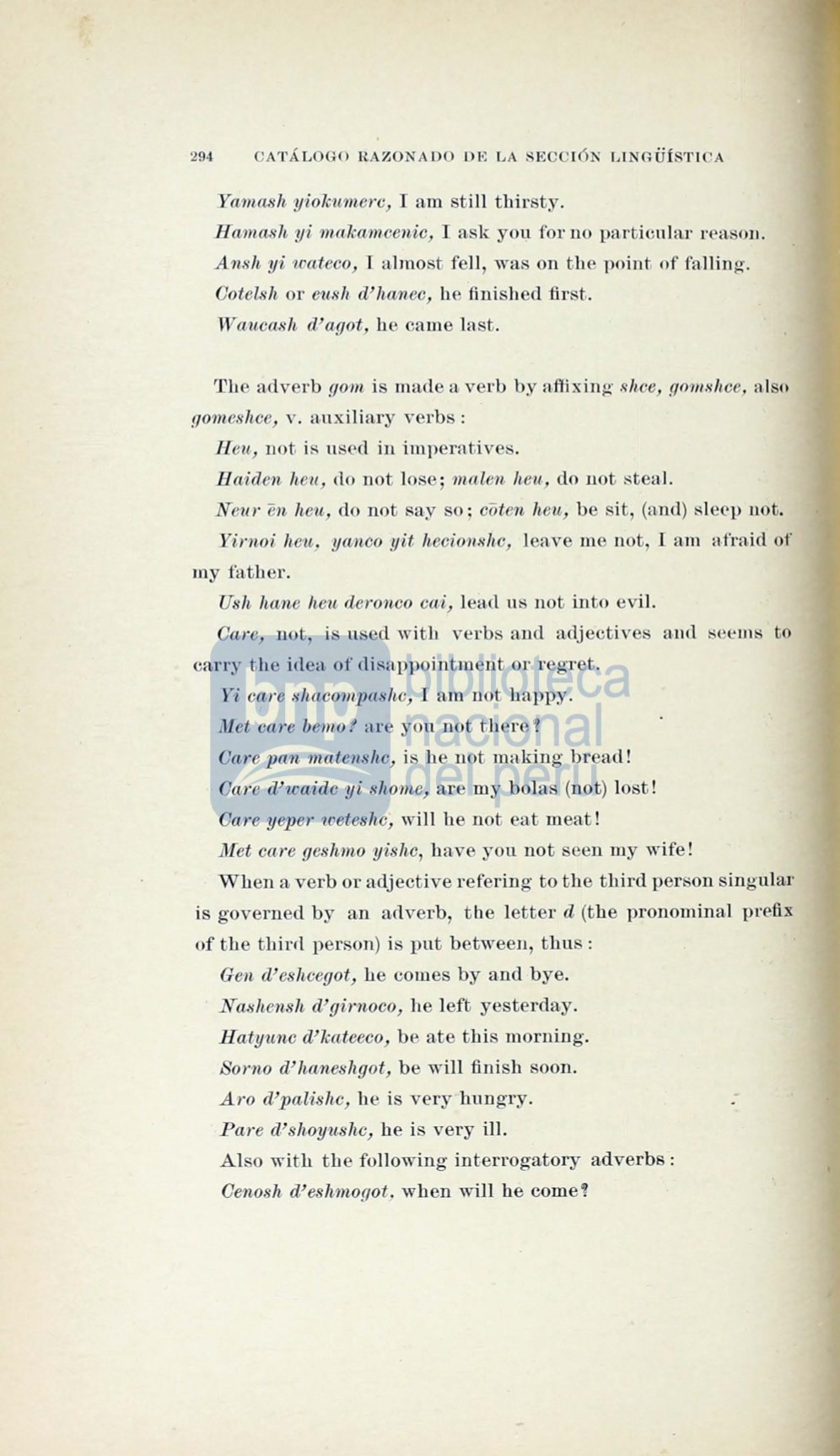

294
CATÁLOGO RAZONADO DE LA SECCI ÓN LINGÜÍ 1'1CA
Yamash yiokiimerc,
I am still thirsty.
Hamash yi nialcamcenic,
I ask you forno particular reasou.
Ansh yi wateco,
l
almost fell, was on tbe point of falling.
Cotelsh
or
eitsh d'hanec,
he finished first.
Waiicash d'a,got,
he carne last.
TLe adverb
gom
is made a verb by affixing
shce, grm1slwe,
a.lso
goineshce,
v. a.uxil iary verbs :
Heii,
not, is used in imperatives.
Hciid.enheu,
do not lose;
11uilen hei1.,
do not stea.I.
Neur en heii,
do not say so ;
coten heii,
be sit, (and) sleep uot.
Yil'noi heii, yanco y·it hecionshc,
leave me not, I am a.fraid of
my fatber.
Ush hane heii deronco caí,
lea.elus not into evil.
Care,
not, is nsed witlJ verbs and adjectives and seems to
carry the idea of disappointment or regret.
Yi
Ci:fre shacompctshc,
I am not bappy.
1 fet care bemo
'I
are you not there
~
Care pan matenshc,
i he 11ot making bread!
Care d'waidc yi shome,
are my bolas (not) lost!
Care yeper weteshc,
will he not eat meat !
Met
ca.regeshnio yishc,
bave you not seen my wife!
When a verb or adjective refering to tbe third person singular
is governed by an adverb, t be letter
d
(tbe pronominal prefix
of the tbirrl person) is put between, thus :
Gen d'eslwegot,
be comes by and bye.
Nashensh d'girnoco,
he left yesterday.
Hatyimc d'kciteeco,
be ate this morning·.
Sorno d'luineshgot,
be
will
fini sb soon.
Aro d'palishc,
he is very hungry.
Pare d'shoyushc,
be is very
ill.
Also with tbe following interrogatory adverbs:
Cenosh d'eshmo,c¡ot .
wbcn will he
come~
















